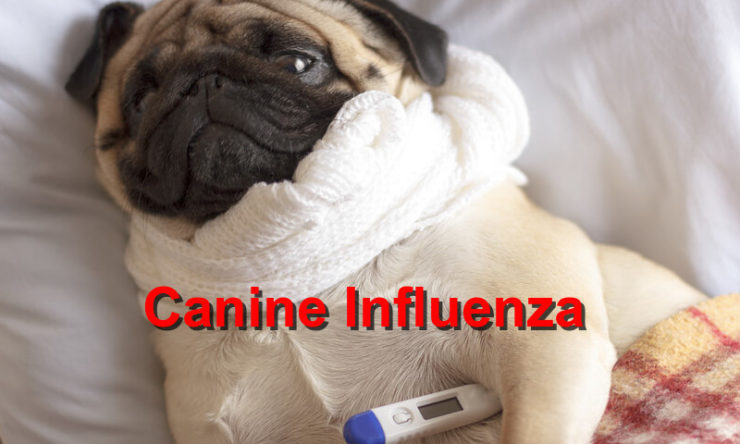Dealing With Canine Influenza
Dog flu or canine influenza is an infectious viral infection that affects both cats and dogs. Currently, the most common strains of dog flu are classified as the H3N2 and H3N8 respectively. This influenza virus can easily change to new strains and can be transmitted from one dog to the next.
Transmission
Dog flu is usually transmitted through aerosols or droplets that contain respiratory secretions caused by sneezing, barking and coughing. Dogs that are in close proximity with dogs that have canine influenza in surroundings like groomers, shelters, kennels and day care facilities are at a higher risk of getting infected.
On the other hand, canine influenza is spread through objects such as water bowls and infected leashes and collars. It is essential to disinfect all contaminated objects that have been used by an infected dog to prevent other dogs from getting infected.
Similarly, if you have recently been in contact with an infected canine, you should wash your hands thoroughly to prevent the virus from spreading.
Incubation period
Canine influenza has an incubation period of up to two days when on the surface, 12 hours on hands and 24 hours on clothing. It is therefore essential to implement disinfection procedures and biosecurity protocols to prevent disease transmission.
According to experts, H3N8 virus has a long incubation period of about 5 days, and the clinical signs might appear within 2 days after exposure. Canines that have been infected might start showing difficulty in respiratory functions between 2 to 7 days.
Clinical and pathology signs of infection
Canine influenza often infects the dog’s respiratory tract and the nasal lining. An infected dog will have bronchiolitis, bronchitis, tracheitis and rhinitis. When the respiratory tract is exposed, bacterial infections in turn causes coughing and nasal discharge.
A common clinical sign that your dog has canine influenza is persistent cough that lasts for 10-20 days despite antibiotics treatment, as well as cough suppressants. Affected dogs might have a dry cough. Other common symptoms of infection include anorexia, lethargy, sneezing and nasal discharge. Most infected dogs usually have prolonged fever and constant nasal discharge.
Treatment
If you suspect your dog has been infected by canine influenza, you should consult a vet who will determine the best choice of treatment. Proper nutrition and husbandry can help enhance the dog’s immune system. Most dogs usually recover within 1-2 weeks after treatment.
Conclusion
If your dog is showing symptoms of respiratory disease caused by canine influenza, you should consult a vet immediately to prevent exposing the virus to other pets.
Copyright: Local Value


